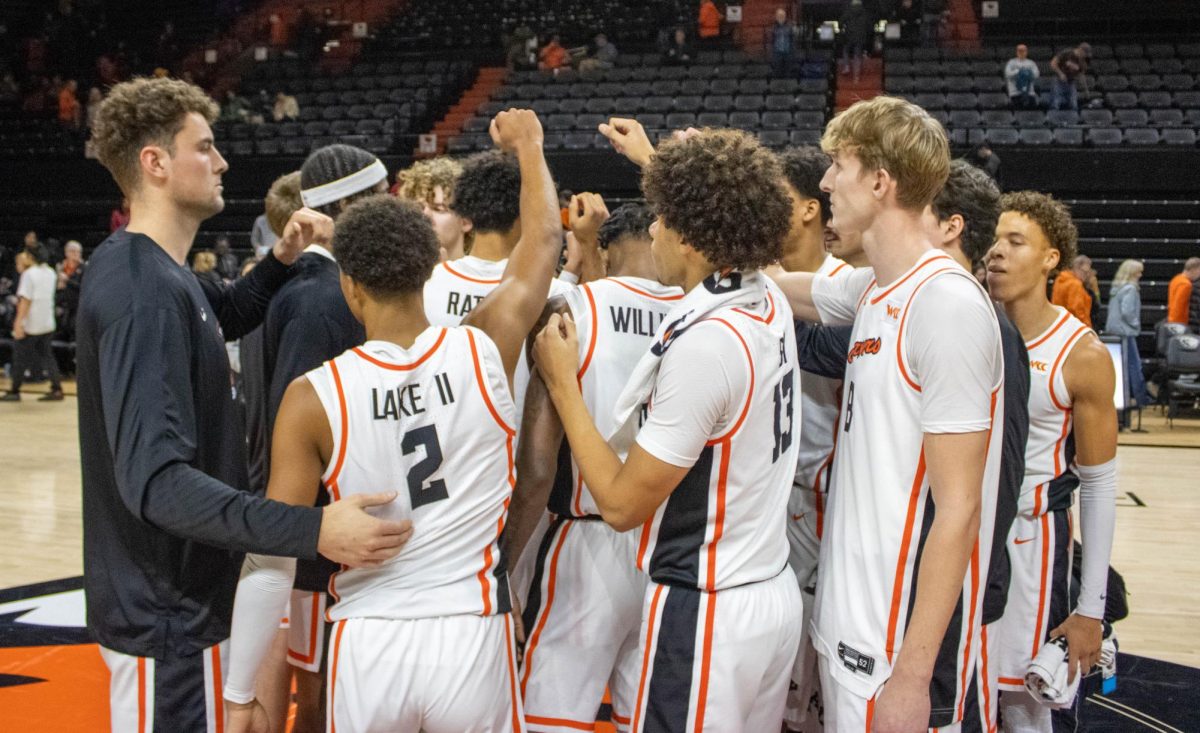Transgender Athletes ban passed by the House – what it means for OSU
May 1, 2023
The House of Representatives passed the transgender athletes ban on April 20.
This ban would prohibit transgender athletes whose sex assigned at birth was male from competing on girls’ or women’s sports teams at federally supported schools and colleges under legislation.
Supporters of the legislation said that ban is necessary to “ensure competitive fairness” and would put violators at risk of losing tax dollars, according to ESPN.
This decision would follow the steps of 20 other states that have implemented and imposed similar regulations on transgender athletes at the K-12 or collegiate level.
This bill, if passed, would change the landmark civil rights legislation of Title IX, which works to protect student athletes from sex-based discrimination at any school that receives federal funding.
Transgender athlete, Oliver Cochener, regards the ban as a setback.
“I will say it is disheartening to see people celebrate discrimination against others,” Cochener said. “I feel athletic policies should not be made by our government as many people choose to play sports for fun and most leagues already have their own policies to fit their own sports.”
Even though the bill was approved by a 219-203 party-line vote, it has been reported that the advancement of the bill is expected to stop here, as it is said the Senate will not support [the bill] and the White House already declared that President Joe Biden would veto it.
“Oregon State University extends rights and protections beyond those currently required under federal or state law, specifically based on gender identity and gender expression,” Interim Executive Director and Title IX Coordinator Susan Freccia said.
OSU and OSU Athletes are a part of the National Collegiate Athletic Association institution, which regulates student athletes across the country, Canada and Puerto Rico. Due to this, OSU and all of its constituents are required to follow NCAA regulations and policies, including policies pertaining to diversity, equity, inclusion and belonging.
Per the NCAA website, the NCAA Transgender Student-Athlete Participation policy “aligns transgender student-athlete participation with the Olympic Movement… the updated NCAA policy calls for transgender student-athlete participation for each sport to be determined by the policy for the national governing body of that sport.”
According to Kimya Massey, Deputy Athletic Director and Chief Operating Officer for the Diversity, Equity, Inclusion and Belonging Steering Committee, both OSU and OSU Athletics follow the NCAA policy that has taken a sport-by-sport approach.
“In addition, we strongly believe that inclusivity is a hallmark of the university and OSU Athletics, this is who we are,” Massey stated. “We believe in inclusion for all of our student-athletes and always strive to ensure that everyone is given the resources needed to be successful on and off the fields of play.”
According to OSU’s sexual misconduct and discrimination policy, the university is committed to creating and maintaining an equitable and inclusive working and learning environment as the “university embraces and respects differences in sex, gender, gender identity, gender expression, and sexual orientation among all individuals.”
This policy also addresses that, “All individuals who are participating in university programs and activities have the right to do so fully, free from sexual misconduct, discrimination, and retaliation.”
OSU’s sexual misconduct and discrimination policy was established in line with Title IX, including the Education Amendments of 1972, the Violence Against Women Act of 1994, the Campus Sexual Violence Elimination Act of 2013, Title VII of the Civil Rights Act of 1964, as well as other applicable state and federal civil rights laws.
“When a student-athlete shares that they identify as transgender, we ensure that they have access to the resources they need to be successful in all aspects of their life here at Oregon State,” Massey said. “The university and OSU Athletics offer specific training and programming around multiple dimensions of diversity and identity to support all student-athletes as needed.”













































































































